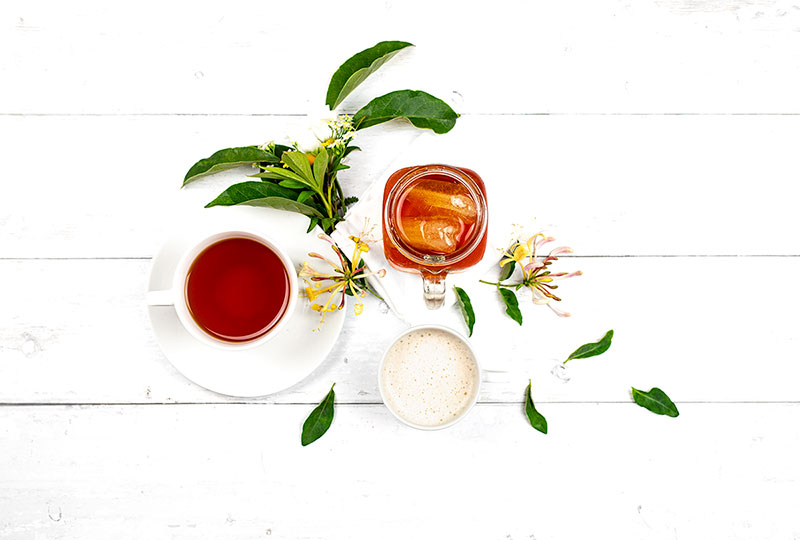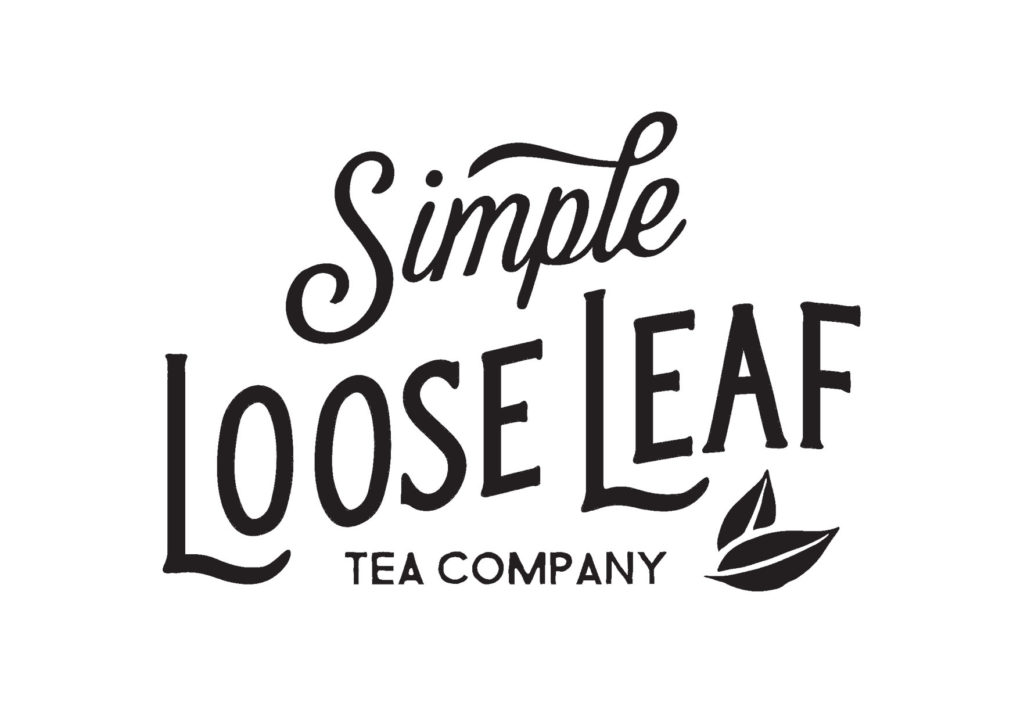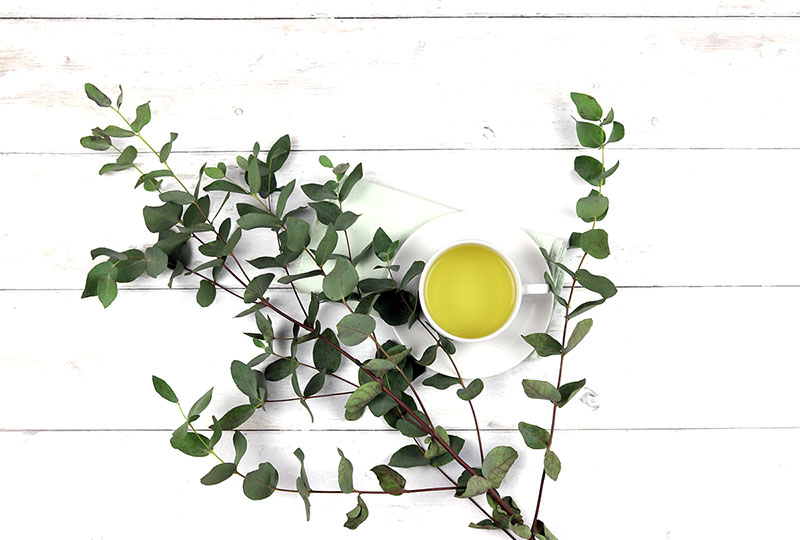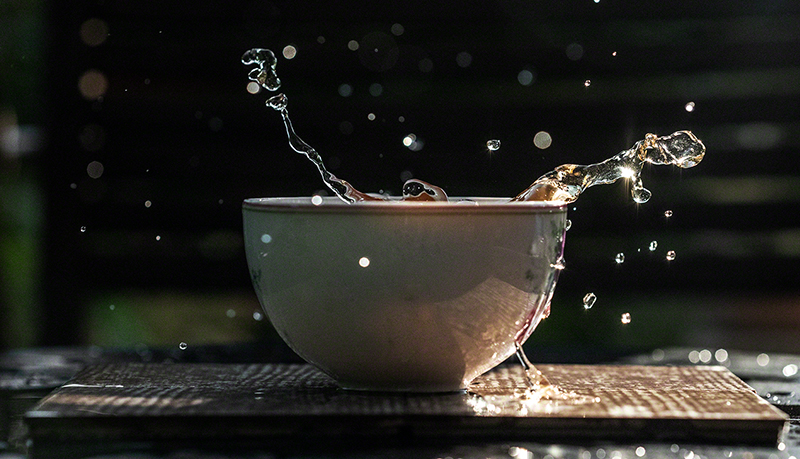Best Caffeine Free Tea for Morning Energy: Top 15 Teas To Try
Are you feeling lonely in the world of caffeine addicts? Caffeine is a reason why many are reluctant to drink real tea regularly, and often desperate when they want to find an energizing alternative for coffee or tea. Regardless if you are intolerant to caffeine, want to reduce a daily intake, pregnant or breastfeeding, there are caffeine free teas that may give you an energy boost you need.
What is caffeine?
Caffeine is one of the most widely used stimulants in the world. It’s considered a drug because it’s a psychostimulant that enhances alertness. Caffeine is found in more than 60 plants.[1] Some theories suggest that caffeine in plants has a protective role and serves as a natural repellent.[2] Coffee, tea, yerba mate and guarana and most commonly used herbal stimulants. Not only are some of them used for making drinks, but they can be bought as a supplement in form of pills, powder and drops. Caffeine is an ingredient in some medicine as well. However, we don’t really need caffeine to make it through the day. In fact, too much caffeine will very likely lead to drowsiness and lower general levels of energy.
How to increase energy levels without caffeine?
Caffeine is only a short-term solution to increasing energy, especially in coffee. If you do need caffeine in the morning, a much better option is green tea. The combination of L-theanine and caffeine in green tea will give you sustained energy, without the extreme sudden peak like with coffee. That’s why you might not immediately notice the energy boost from green tea (unless you drink 2+ cups at once), but will feel more energized throughout the day.
It’s difficult to live an energy-full life with no caffeine at all. Exercising, healthy food, general health condition, age, sleeping habits and daily stress will increase or decrease your need for an extra energy. For example, processed foods full of bad fat and sugar may easily make you feel sluggish and reduce energy levels.
What is the best caffeine free tea?
Besides 60 available plants that contain caffeine, there are hundreds of those that don’t. The difference between real tea and herbal teas is that while all real teas share similar benefits, every herbal tea will be unique. Learn about the herbs you plan to drink before putting the kettle on.
1. Rooibos tea
Some of the best caffeine free tea in the world at the moment is rooibos. Rooibos has many benefits and it’s grown only in South Africa. Some sources suggest it may decrease fatigue. Rooibos or red bush tea is loaded with antioxidants and shares some benefits with green tea. However, because it’s completely caffeine free and naturally sweet, it’s suitable for any time of the day or night. Read the full article why Rooibos is the Best Herbal Tea.
Caffeine free loose leaf tea blends with rooibos: See all

Rooibos tea
How To Find Caffeine-Free Tea
Always read the full ingredients list when buying a new tea. Not only it may contain caffeine, but you might also be at risk of developing serious side-effects if the tea contains any ingredients that might interfere with the medicine you are taking. Herbs with a lot of caffeine are yerba mate, guayusa and guarana, so avoid any blend containing those herbs. Cocoa has caffeine too, and although delicious, herbal teas with cocoa might not be so innocent if you want to avoid caffeine.
Are decaffeinated teas safe?
Another option is decaffeinated real tea. Decaffeination process usually removes a part of healthy substances too, so levels of EGCg in decaffeinated green tea might be lower. The most popular decaffeinated real tea is probably Earl Grey, which is often a top choice for unique, delicious flavor.
Best Caffeine Free Teas to Try
Although caffeine free teas won’t give you the same energy boost as caffeinated drinks, they will help you energize, purify, de-stress, increase alertness and improve mood and memory. In combination with healthy eating habits, regular quality sleep and exercise, they may enhance the quality of life. Except rooibos, the following teas are a good choice for your energizing tea collection:
-
Peppermint tea
Peppermint tea is a top herbal choice for instant refreshment. Research shows that peppermint tea might increase alertness[3], making it a great choice for a morning alternative to caffeinated drinks.
Caffeine free loose leaf tea blends with peppermint: Seven
-
Sage tea
Sage is one of the top promising cognitive-enhancing herbs[4]. It may be helpful in enhancing memory, attention and learning and preventing from some neurodegenerative diseases.
Caffeine free loose leaf tea blends with sage: Clari’tea
-
Ginger tea
From chai to herbal teas, ginger is an ingredient that not only enhances the flavour, but might be a great substitute for a morning coffee. Study on middle-aged healthy women showed it may help improve cognitive function,[5] fight fatigue and increase energy.
Caffeine free loose leaf tea blends with ginger: Winter’s Elixir
-
Lemongrass tea
Although lemongrass is often used for stress-reducing and calming effect, it may help with energy levels and alertness.
Caffeine free loose leaf tea blends with lemongrass: Summer Splash
-
Rosemary tea
Research showed that rosemary may help increase alertness too[6]. You can make rosemary tea from both fresh and dry leaves, pure or blended with other ingredients. Although rosemary has a strong scent, flavour is delicate and very enjoyable.
Caffeine free loose leaf tea blends with rosemary: Clari’tea
-
Ginkgo tea
The most popular memory enhancer has more than just one benefit. Gingko, a tree old 270 million years, may increase alertness and calmness and “by making you more alert and calm, it may increase your sense of energy[7].”
Caffeine free loose leaf tea blends with ginkgo: Clari’tea
-
Ashwagandha tea
As a powerful adaptogen, ashwagandha may have a potential rejuvenating effect[8]. Adaptogens have a natural ability to increase body’s resilience to stress, that increases fatigue and decreases the quality of life.
Caffeine free loose leaf tea blends with ashwagandha: Vedic Healer
-
Tulsi tea
Tulsi or Holy Basil, is another powerful adaptogen that may help with detoxication and fighting stress and memory enhancement[9]. This caffeine free herbal tea is great on its own or blended with other herbs or real teas.
Caffeine free loose leaf tea blends with tulsi: Shanti Herbal
-
Cinnamon tea
Cinnamon is one of those spices you are either crazy about or avoid at all cost. Not only is cinnamon delicious (if you belong to the first category), it may help you feel more alert.
Caffeine free loose leaf tea blends with cinnamon: Seven
-
Gotu Kola
A recent research showed that Gotu Kola might enhance alertness and relieve anger[10].
Caffeine free loose leaf tea blends with gotu kola: Clari’tea
-
Lemon balm
Lemon balm tea might not be your regular energy-boosting choice, but research shows that it may, in fact, boost energy and treat irritability and nervousness[11]. Another research shows that It may improve mood and cognitive performance[12].
-
Chai tea
The real masala chai is a blend of black tea and spices, usually very high in caffeine. However, herbal blends might give you just enough energy boost in the morning as the real one. Choose rooibos tea blends with pepper, ginger and cinnamon.
Caffeine free chai loose leaf tea blends: Summer Chai
Best Low Caffeine Real Teas to Try
All real teas made from Camellia sinensis contain caffeine. Caffeine in tea depends on many factors—from the tea varietal, to growing conditions, harvesting season, types of leaves used for making tea, and even processing methods. Roasting tea leaves usually lowers the level of caffeine so many roasted teas have less caffeine than the less processed ones. Mature older leaves have less caffeine than younger spring leaves or buds, and so do stalks. The following teas contain very little caffeine compared to other types.
-
Kyobancha
Japanese roasted tea from old mature leaves is one of the most suitable teas if you want to drink real green tea with low caffeine content.
-
Kukicha
Kukicha can have low caffeine content too, depending on the leaf ratio in the blend, and which tea it is made from. Although gyokuro kukicha will be of higher quality, it will also have higher levels of caffeine. If you want to enjoy the benefits of green tea and wish to take as little caffeine as possible, opt for bancha kukicha.
-
High mountain oolong tea
High mountain oolong tea from Taiwan usually has less caffeine than green or black tea, thus making it a safer choice for a late afternoon tea.
Disclaimer: Most of the herbs on our list are likely safe in low doses, especially those that you can grow in your own garden. However, before deciding to treat yourself with herbal teas, we strongly suggest consulting your doctor. Some herbs may interact with certain medicine and cause serious side-effects.
References:
[1] https://www.researchgate.net/publication/216049644_Tea_Caffeine_Metabolism_Functions_and_Reduction_strategies
[2] https://www.researchgate.net/publication/216049644_Tea_Caffeine_Metabolism_Functions_and_Reduction_strategies
[3] https://www.ncbi.nlm.nih.gov/pubmed/18041606
[4] https://www.ncbi.nlm.nih.gov/pmc/articles/PMC5318325/
[5] https://www.ncbi.nlm.nih.gov/pmc/articles/PMC3253463/
[6] https://www.ncbi.nlm.nih.gov/pmc/articles/PMC5198031/
[7] https://www.health.harvard.edu/blog/do-energy-boosters-work-201311156878
[8] https://www.ncbi.nlm.nih.gov/pmc/articles/PMC3252722/
[9] https://www.ncbi.nlm.nih.gov/pmc/articles/PMC4296439/
[10] https://www.ncbi.nlm.nih.gov/pmc/articles/PMC5587720/
[11] https://www.researchgate.net/publication/285581177_LEMON_BALM_MELISSA_OFFICINALIS_L_AN_HERBAL_MEDICINAL_PLANT_WITH_BROAD_THERAPEUTIC_USES_AND_CULTIVATION_PRACTICES_A_REVIEW




